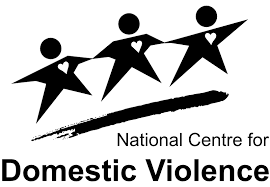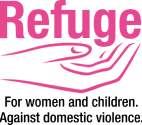On 23rd March 2020, the UK entered lockdown, restricting movement to only those with a ‘reasonable excuse’. This lockdown has heightened feelings of anxiety, vulnerability, and stress, especially for those experiencing domestic violence or abuse at home. For victims of coercive control, psychological and emotional harm, and other forms of domestic abuse, the isolation has made it even more difficult to seek help or escape an abusive situation.”
In what are already very difficult times, it was truly heart-breaking to learn that since lockdown, there has been a sharp increase in the amount of calls, and online enquiries, requesting help from various Domestic Abuse Helplines. This blog aims to help those who need protection to give guidance on how to access it.

What is Domestic Abuse?
Domestic abuse comes in many forms from controlling, coercive, and threatening behaviour to physical violence. It also encompasses psychological, physical, sexual, financial and emotional harm. To include harassment, stalking and female genital mutilation (FGM).
If you are suffering domestic abuse within your household, one obvious form of protection would be to leave home and stay somewhere else. However, in the current climate this is not so easy to do and understandably, it may be difficult to seek help if you are living in extremely close proximity to the perpetrator.
What Options Are Available for a Domestic Abuse Sufferer?
There are various options and resources available to protect you. There are various charities and organisations providing help and support. Some of these are:

Call the National Centre for Domestic Violence on 0800 970 2070

Call Victim Support on 08 08 16 89 111

Visit the Refuge National Domestic Violence Helpline on 0808 2000 247

The Police also have several powers to prevent harassment and other threatening behaviour by implementing what are known as Harassment Orders and Injunctions.
You can also take legal action and obtain a Court Order to prevent your abusive partner from harming or threatening you by obtaining a ‘Non-Molestation Order’.
A Non-Molestation Order prevents an individual from ‘molesting’ another person who is associated with them. The term ‘molestation’ refers to a level of harassment which requires the Court’s intervention and you need to be ‘associated’ with the perpetrator in order to apply. This means that you must have been married, been in a civil partnership with, cohabitated with or be related to the person who is causing the Domestic Violence. There is no Court fee for making an application for a Non-Molestation Order. They carry an automatic Power of Arrest if they are subsequently breached, giving peace of mind that the perpetrator will be punished for any breaches which are a criminal offence.
A harassment order can prohibit the abuser (the harasser) from doing things like using physical violence or threatening you with physical violence, intimidating you, harassing you, pestering you or even just communicating with you.
If you find yourself in immediate danger of being abused or have been abused then you must report it to the police immediately.
You can apply online for a Harassment Order via the RCJ Citizens Advice CourtNav service to prepare an injunction application online. Your solicitor can assist you with this process if required.
Coercive control is a form of domestic abuse that involves patterns of controlling and manipulative behaviour that are designed to intimidate, isolate, and dominate another person. This form of abuse can be difficult to identify, as it doesn’t always involve physical violence. Instead, it often includes a range of tactics such as:
Manipulating emotions to make the victim feel worthless or dependent.
Isolating the victim from friends, family, or other sources of support.
Monitoring and controlling the victim’s movements, communications, or finances.
Threatening harm to the victim, their loved ones, or even pets.
Gaslighting – making the victim question their own memory, perception, or sanity.
In England and Wales, coercive control was made a criminal offence under the Serious Crime Act 2015. This law recognises that coercive control is a serious form of abuse, even if it does not involve physical violence. It allows the police to investigate and prosecute those who engage in patterns of controlling and manipulative behaviour.
Legal Help for Victims of Coercive Control
If you believe you are a victim of coercive control, there are legal avenues for protection and support:
Report to the Police: Coercive control is a criminal offence, and the police can investigate claims and, where appropriate, arrest and charge the abuser.
Non-Molestation Order: If you’re facing coercive control and are at risk of harm, you may be eligible to apply for a Non-Molestation Order. This order is a civil order that prevents the abuser from harassing or threatening you, and can include provisions such as banning contact with you or your children. The order carries an automatic power of arrest if it is breached, meaning the perpetrator could be arrested if they violate the terms of the order.
Occupation Order: If you are living with the abuser, an Occupation Order may allow you to stay in the family home, or force the abuser to leave. This is particularly useful in situations where there is a threat of physical or emotional harm.
Support Services: Various charities and organisations, such as Women’s Aid and The National Domestic Violence Helpline, provide confidential support and advice for those experiencing coercive control. They can offer guidance on safety planning, finding temporary accommodation, and accessing legal services.
Family Law Solicitors: If you’re experiencing coercive control and need legal assistance, it’s highly advisable to consult a family law solicitor. They can guide you through the process of applying for a Non-Molestation Order, assist with any child custody issues, and help protect your legal rights.
Coercive control can have long-lasting effects, both emotionally and psychologically. It is important to seek help and take action to protect yourself and your family. Legal protections, such as non-molestation orders, are available to help safeguard victims, and legal professionals can offer the support you need to navigate the process.
Legal help for domestic abuse victims in Yorkshire
We realise that it may be difficult to access help, but at Thornton Jones Solicitors we are here to guide you through the court process. If you would like further information, guidance or advice about applying for a Non-Molestation Order then please do not hesitate to contact one of our Family Lawyers to arrange an appointment.
☎️ Call our Wakefield office on 01924 290 029
☎️ Call our Garforth office on 0113 246 4423
☎️ Call our Sherburn in Elmet office on 01977 350 500
☎️ Call our Ossett office on 01924 586 466
The content of this blog post is for information only and does not constitute formal legal advice and should not be relied upon as advice. Thornton Jones Solicitors Limited accepts no liability for any such reliance upon this content. Where the post includes links to external websites, Thornton Jones Solicitors Limited accepts no responsibility for the content of such sites. Any link to a third-party website should not be construed as endorsement by Thornton Jones Solicitors Limited of any content, products or services which are outside our direct control.







